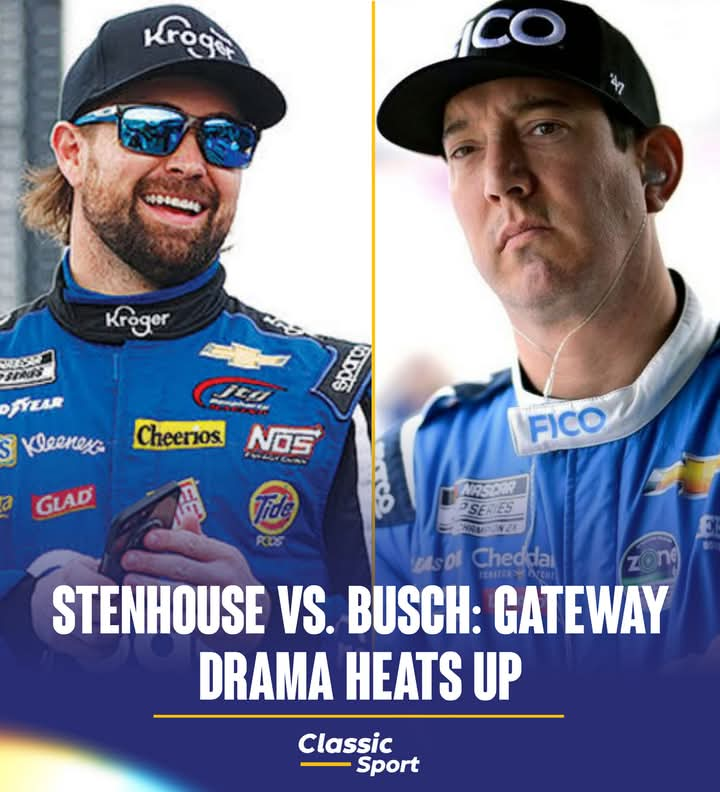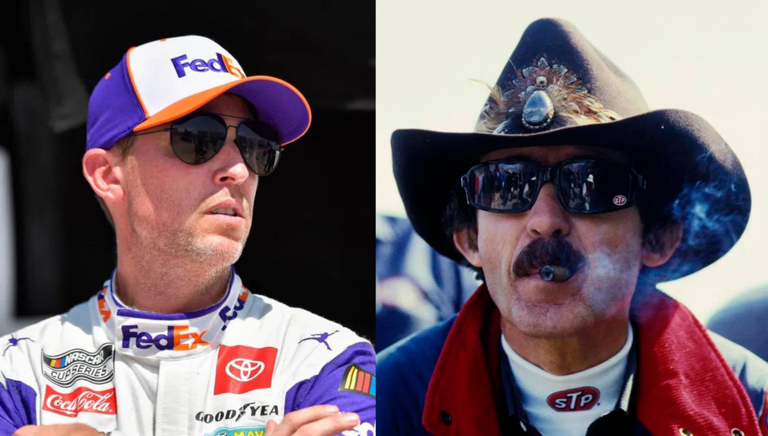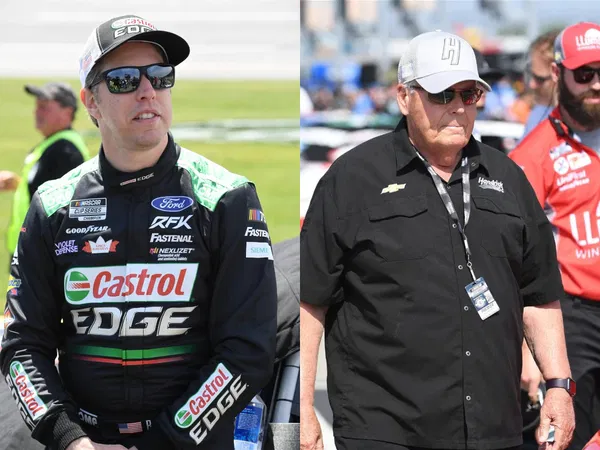In a significant turn of events in the world of motorsports, 23XI Racing and Front Row Motorsports have officially filed an antitrust lawsuit against NASCAR in federal court in North Carolina. This legal action raises intriguing questions about competition, fairness, and the future of stock car racing in the United States. As the lawsuit unfolds, the implications could resonate throughout the motorsports community, igniting discussions about the fundamental structure of racing in America.
The Background of the Dispute
The lawsuit comes at a time when NASCAR is undergoing a transformative phase, with new regulations and a push for inclusivity in the sport. However, the plaintiffs argue that NASCAR’s actions have stifled competition and created an unfair playing field for smaller teams.
23XI Racing, co-owned by basketball legend Michael Jordan and driver Denny Hamlin, was established with the vision of not just competing at the highest level, but also enhancing the diversity and representation within the sport. On the other hand, Front Row Motorsports, with a long-standing commitment to developing talent and providing opportunities for up-and-coming drivers, has faced increasing challenges in a rapidly evolving racing landscape.
Both teams assert that NASCAR has implemented rules and practices that disproportionately benefit larger, more established teams. This perceived favoritism undermines the spirit of competition and puts smaller teams at a disadvantage, making it increasingly difficult for them to succeed on the track.
Key Allegations
The lawsuit outlines several key allegations that highlight the perceived inequities in NASCAR’s operational framework:
Restrictive Practices: The teams claim that NASCAR’s regulations are designed in ways that favor larger teams. This includes access to advanced technologies, resources, and insights that smaller teams struggle to obtain. As a result, they argue, smaller teams cannot develop their cars or attract top talent, leading to a cycle of underperformance.
Monopoly Control: The plaintiffs contend that NASCAR’s dominant position in the stock car racing arena has created a monopoly, restricting opportunities for competition and innovation. They argue that NASCAR’s practices limit the ability of smaller teams to thrive and grow, contradicting the essence of competitive racing. The lawsuit suggests that NASCAR’s control over the sport’s regulations and resources stifles diversity and innovation in racing.
Impact on Competition: By fostering an uneven playing field, NASCAR’s alleged practices threaten the competitive nature of the sport, which has long been a cornerstone of its appeal. Fans cherish the underdog stories, and when smaller teams are consistently at a disadvantage, it detracts from the excitement and unpredictability that draws audiences in. The plaintiffs argue that the thrill of competition is diminished when the outcome of races is heavily influenced by the size and resources of the teams involved.
Lack of Transparency: Another significant allegation in the lawsuit is the lack of transparency in NASCAR’s decision-making processes. The plaintiffs argue that unclear rules and arbitrary enforcement create confusion and frustration among teams, particularly smaller ones. They claim that this lack of clarity contributes to an environment where only a select few teams can thrive, further entrenching the existing power dynamics in the sport.
Industry Reactions
The announcement of the lawsuit has sent ripples throughout the motorsports community. Many industry insiders and fans are rallying behind the plaintiffs, viewing this legal challenge as a necessary step toward fostering a more equitable racing environment. The response has been swift, with numerous commentators and analysts weighing in on the implications of this legal action.
Social media has erupted with discussions, as fans express their support for 23XI Racing and Front Row Motorsports. Many believe that this lawsuit could lead to vital changes within NASCAR that promote fairness and competition, benefitting not just the teams involved, but the entire sport. The conversation also extends to other teams that have felt marginalized in NASCAR’s current framework, as many see this lawsuit as a potential catalyst for broader reform.
Furthermore, industry experts are closely analyzing how this lawsuit might influence NASCAR’s reputation and its relationships with teams moving forward. With increasing scrutiny on the fairness of competition across various sports, the outcome of this lawsuit could set a precedent for how governing bodies manage relationships with smaller organizations.
What’s Next?
As the case unfolds, it will be essential to monitor how NASCAR responds to these allegations. The organization has historically maintained a tight grip on its regulations and has shown resistance to changes that threaten its established order.
NASCAR will likely defend its practices vigorously, arguing that its regulations are designed to enhance safety, competitiveness, and the overall integrity of the sport. However, the legal battle may force NASCAR to reevaluate its approach to team regulations and oversight, particularly in light of growing calls for reform from both fans and participants.
Additionally, if the plaintiffs prevail, it could lead to a more balanced approach that fosters competition and innovation among teams of all sizes. This could result in changes to the way NASCAR operates, potentially opening the door for new teams to enter the series and for existing teams to grow and innovate.
The Broader Implications for Motorsports
This lawsuit touches on a larger issue facing many sports: the balance of power between larger, well-funded organizations and smaller competitors. As professional sports evolve, maintaining a competitive landscape becomes increasingly complex. The outcome of this lawsuit could influence not only NASCAR but also other motorsports leagues and organizations that may face similar challenges in balancing the interests of different stakeholders.
In addition, this case could inspire other teams across various sports to explore legal avenues to challenge perceived inequities within their leagues. The emphasis on fairness and opportunity is not just a racing issue; it is a broader theme in professional sports that could resonate well beyond the courtroom.
The antitrust lawsuit filed by 23XI Racing and Front Row Motorsports against NASCAR is more than just a legal battle; it is a pivotal moment for the future of stock car racing. As fans, teams, and stakeholders watch closely, the hope remains that this challenge will pave the way for a more equitable and competitive environment in the sport. With the stakes this high, the motorsports community is on the edge of its seat, eager to see how this dramatic chapter will unfold.
As the racing season continues, the implications of this lawsuit will be felt both on and off the track. Will it lead to the reforms needed to restore competition in NASCAR? Only time will tell, but one thing is certain: the fight for fairness in motorsports has only just begun.




